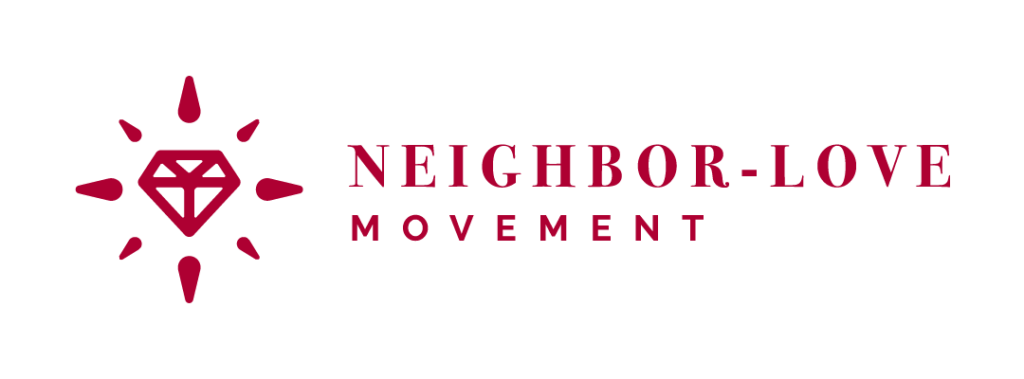America’s 2020 presidential election is dominating attention at home and around the world. Millions of Americans have already cast their votes, and many more will vote before Tuesday is over.
Some commentators have called this the most significant American election since the Civil War. The candidates have spent a record-smashing $6.6 billion on their campaigns in hopes of victory.
“Election” comes from the Latin word eligere, which simply means to “pick out” or “choose.” A democratic election is the process of citizens selecting people to represent them in government for a limited term. More broadly, an election is the process of citizens deciding what matters most to them as a society.
In this election season, I have felt politically homeless, and I’ve heard the same from many others. As a Christian and ethicist, no party or candidate adequately represents my beliefs and values. Voting one way or another felt like honoring some of my convictions while betraying others. As I stood in line to cast my ballot, I couldn’t help reflecting on the fact that this election is structured by access to massive money, exclusive connections, and tribalistic loyalty in the pursuit of power.
Paul’s words from a Roman prison impressed themselves on me in a new way: “But our citizenship [politeuma] is in heaven, and we eagerly await a Savior from there, the Lord Jesus Christ” (Philippians 3:20). Paul’s refusal to attach himself to any political identity echoes in another ancient Christian letter: “Christians share all things as citizens, and suffer all things as strangers. Every foreign country is their homeland, and every homeland is a foreign country” (Epistle to Diognetus, V, 359-361, second century).
This presidential election is important for Americans and people around the world. But I believe the election of everyday life matters most in the long run.
The election of everyday life is our daily, untelevised opportunity to choose how we will see and treat other people wherever we find ourselves. The way we cast our vote in this election determines the kind of character, community, and culture that is possible in our society — our homes, neighborhoods, schools, workplaces, houses of worship, social media platforms, entertainment studios, prisons, and other institutions.
The election of everyday life matters greatly for at least three reasons.
First, this election literally happens every moment of every day. Everyone is registered, whether we like it or not. Everyone votes, whether we realize it or not. This election is the substance and work of our lives — not an event once every four years.
Second, we actually have serious local influence over the outcome of this everyday election. Thankfully, none of us is all-powerful. But each of us can influence the kind of communication culture we develop, the moral character and behavior that we consider worthwhile, and the quality of community that we inhabit.
Third, the election of everyday life shapes the social and political culture behind our formal elections. If we are cultivating a society of dignity, dialogue, and cooperation for the common good, our elections should look more like this. But if we are cultivating tribalism, trash talk, and zero-sum conflict, there is little surprise if our elections and their outcomes look like this.
In short, the election of everyday life isn’t escapist, inconsequential, or merely personal. It’s upstream from politics and ultimately decides what’s possible for our society.
Consider some of the voting options on the ballot of this everyday election. They’re written onto our bodies and the choices we make in our relationships:
Eyes: Do we choose to see and include others as people with God-given value across our differences? Or do we overlook or devalue people who are different than us?
Mouths: Do we choose to speak with truth, kindness, and respect across disagreement? Or do we resort to exaggeration, insult, and contempt?
Ears: Do we choose to listen with patience and consider opposing ideas with the same seriousness that we want for our ideas? Or do we rush to label, interrupt, or simply checkout when we hear something we don’t like?
Feet: Do we choose to cross divides, get to know the people we’re convinced are wrong, and learn to cooperate for shared goals? Or do we stay put in tribalistic communities where everyone agrees and sees the rest as idiots or enemies?
Hearts: Do we grieve when other people hurt, or have we hardened our hearts to their pain?
Minds: Do we choose to think carefully and critically, including about our own positions and people? Or have we allowed our minds to be trapped in simplistic categories, identity camps, and blame games?
Everyday life is our most important election.
Our bodies and relationships are our everyday ballots.
The choices we make are our everyday votes.
And our character, community, and culture are the outcomes.
Each interaction with other people is a vote. Each page or screen we look at is a vote. Each social media post, email, and text is a vote. Each act of service or injustice is a vote. Each hiring decision and business deal is a vote. The work we choose and the way we do our jobs is a vote. Each sermon and church service is a vote. The prayers we pray, the hopes we harbor, the jokes we laugh at, the forgiveness or contempt we express — these are votes.
Yes, this presidential election will have serious implications. I’m not denying or downplaying this fact. But we shouldn’t misplace our focus, energy, or love amid the apocalyptic warnings and utopian promises surging around it.
The most important election happens in our everyday life.
What are you voting for?
I’m voting for a society of love, justice, and flourishing through the daily practice of neighbor-love. If you’re interested, learn more here.




